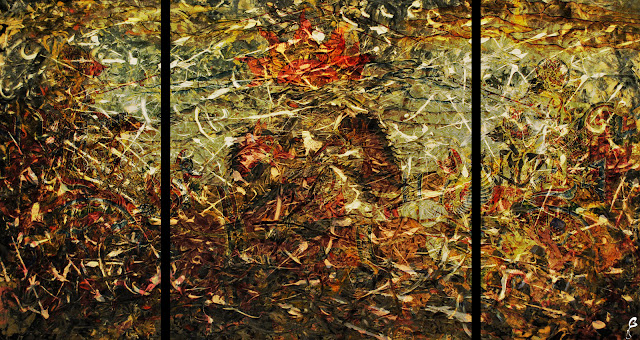Our epic hero, Karna, is born to Kunti, who in a moment of
youthful curiosity invokes the Sun God, Surya, to test a spell bestowed upon
her by a rishi. Under the effect of the spell the Sun god bestows a son, Karna,in
the regalia befitting a true warrior, with a golden armour and golden earrings.
They itself signify the infinite capability of the boy, an infant, who would change
the course of time in ways so profound.
But from the moment of his conception he is shunned. He is
unacceptable to his mother who fears defamation for bearing son while still
unmarried. In a manner most disrespectful to a hero he is cast away in a casket
to reach the house of a charioteer. His fatherhood is again intensely debated: should
it be the Sun God, Surya, or the man his biological mother marries: Pandu, making
him the foremost Pandava, or the husband of the woman, Radha, a charioteer in
the Kuru dynasty, who bring him up as their own son. The irony continues to
amaze us. Karna’s ancestry and fatherhood makes him either the ruler of the
Kingdom, or its mere vassal, upon the generosity of Duryodhana.
Another stark comparison between Karna and Krsna’s
childhood cannot escape this narrative. Both born of royal parentage are brought
up in primitive households. Krsna brought up in the house of Nanda and
Yashodha. Krsna accepts this position playfully and enjoys every moment of his
childhood, playing with friends, tending to cows, with soft music of the flute.
Karna on the other hand is forever seen distraught with this position. He knows
he is born to be a warrior, why else would he have a golden armour and earrings.
He never really comes to terms with his place as a charioteer ‘son. . We see
that while Krsna, who is variously referred to as a cowherd is foremost respected
by most kings, including Yudhistira, never takes ‘cowherd’ as being an offence.
Krsna accepts this fully and takes pride
in being called a cowherd or nandlala. He accepts himself with delight and that
may be the reason why he is accepted as a Kshatriya, a king more easily than
Karna who refuses to accept himself, his past.
Much like a tragic hero of some odyssey, or like most men in
the modern sense, Karna is presented with problems right from the moment of his
birth, most of which he is helpless to do anything about. Yet he has to rise above
them, for therein lies the glory. He cannot change his father’s position but he
can very well rise up and does so to become the king of Anga, though again it
is not his merit or his prowess as a warrior that lands him the kingship, at
least not directly. It is rather the jealousy of one man Duryodhana upon the pandavas
and the prospect he sees in Karna as the one man who can defeat Arjuna. He is made
king of Anga by Duryodhana who wanted to see Arjuna loose more than Karna win.
All through his life he is pitted against problems he did
not create, shunned for deeds he was not responsible for, his merits, skill,
prowess and virtues all erased in the questions of blood and birth, and
problems he can do nothing about. In modern terms that would be every man. But
he rises no doubt, but not as great as Krsna, and that is because he refused to
accept and respect himself for who he was and tries to become what the world
respected.

